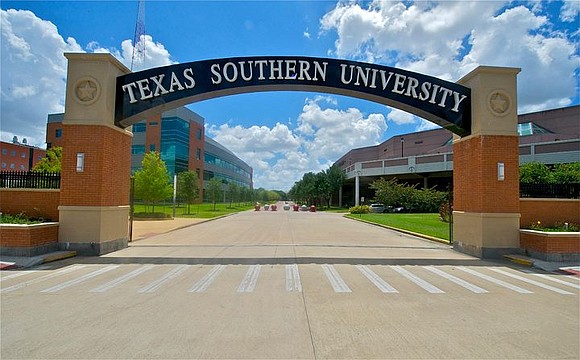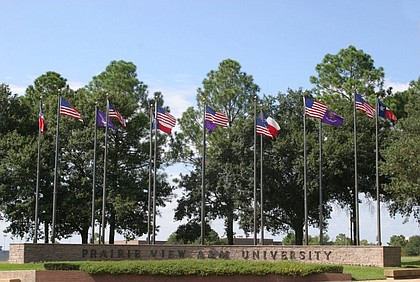HBCUs Spotlight: Texas Southern University and Prairie View A&M University
Jo-Carolyn Goode | 3/8/2019, 11:06 a.m.
Today’s African Americans are living out loud the educational dreams of their ancestors. Segregation for far too long denied so many African Americans even the opportunity to learn. And to now be able to attend any college that one wants is just a dream that those back then never could have realized.
However, before America became “progressive” and laws changed, segregation was a huge barrier for the education of African Americans until the establishment of Historical Black Colleges and Universities (HBCUs). HBCUs have become treasures of America. March is HBCU Awareness Month to recognize their importance in history and protect their future. During this month, Houston Style Magazine will feature the nine HBCUs in Texas. This issue we recognize Texas’ two largest HBCUs, Texas Southern University and Prairie View A&M University.
Texas Southern University opened its doors in 1927 as a junior college for colored people. The Houston Public School Board provided a loan of $2,800 for the first 300 students to establish the college. It was such a great asset that the college quickly became a member of the Association of Colleges and Secondary Schools that was approved by the Southern Association of Colleges in 1931. Big changes were on the horizon when the college started offering four-year programs and became the Houston College for Negroes. It was also around this time that the college began to be managed by a separate Board of Regents and not by the Houston Independent School District. The college started to experience rapid growth and needed a new location from where classes were being held at Jack Yates High School. Funding from various contributors allowed the purchase of land and groundbreaking of the first campus building, the T.M. Fairchild Building, that is still operational today.
Another name change was in the works in 1947 to create an African American only law school after the denial of admission to Herman Sweatt to the University of Texas Law School. Senate Bill 140 and House Bill 788 opened the door for the law school and new name, Texas State University for Negroes. That name didn’t last for long as African Americans petitioned for the phrase “for Negroes” be removed. They won that right and the name we know today was set, Texas Southern University.
TSU stands as a proud university of the south with over 100 programs for undergraduate and graduate students taught by a diverse faculty with both a law and pharmacy school. More than 9,000 students pursue their higher education dreams on the 150-acre campus. It is the only HBCU in Texas that is still operating independently of being in a university system. TSU President Dr. Austin A. Lane, faculty and staff are making sure all maroon and gray tigers upon graduating from TSU are prepared and ready to solve today’s problems and dream up tomorrow’s unforeseen discoveries.
A few miles down the road is one of TSU’s biggest rivals, Prairie View A&M University. In an effort to maintain separate but equal, PVAMU was established with the passage of the Texas Constitution of 1876 for an “Agricultural and Mechanical College” and became the first state supported college in Texas for African Americans. The first campus was erected on 1388 acres and managed by the A&M Board of Directors. Eight young men were the first students enrolled in 1878 under the name A&M College of Texas for Colored Youths. Originally, the school was just supposed to be a training grown for African Americans to be teachers. The distinction of the added branch of the Agricultural Experiment Station (Hatch Act, 1887) and as a Land Grant College (Morrill Act, 1890) opened the opportunity for focuses in the arts and sciences, home economics, agriculture, mechanical arts, and nursing. With more education concentrations came larger growth. Four-year programs began in 1919. Thus the university was authorized to offer all courses at the University of Texas under the new name Prairie View University in 1945. Yet, another change came in 1947 when the university name was changed by the Texas Legislature to Prairie View A&M College of Texas. The name we know today was finalized after the university became an independent unit of the Texas A&M University System.
Prairie View A&M University stands as one of today’s premier institutions with an enrollment exceeding 9,000 students. The student body is highly diverse having representation from 43 countries and a faculty to match. An original charter member of the Southwestern Athletic Conference, PVAMU students compete on an NCAA Division1 level. Known throughout the land as the producers of productive people, over 46,000 academic degrees have been awarded to graduates. The university is internationally recognized for Agricultural Research, Architecture, Biology, Business, Education, Engineering, Juvenile Justice and Nursing. Students leave the hill ready to conquer today’s challenges and solve tomorrow’s mysteries but their eyes never grow tired of looking toward the highest point in Waller County.
HBCU graduate power packing person herself, Dr. Ruth J. Simmons, is the university president that is home to the royal purple and gold panthers. Dr. Simmons has the goal of spreading the PVAMU story throughout the country to garner funding to progress the university’s reach and give flexibility to its needs.
From the history of these two fine intuitions of higher learning, one can clearly see that existence was vital for the advancement of African Americans. We must hold on to these intuitions and support them in every way possible. Thrive on dear TSU and PVAMU.
*Information for this story was gathered from the websites for Texas Southern University and Prairie View A&M University.





